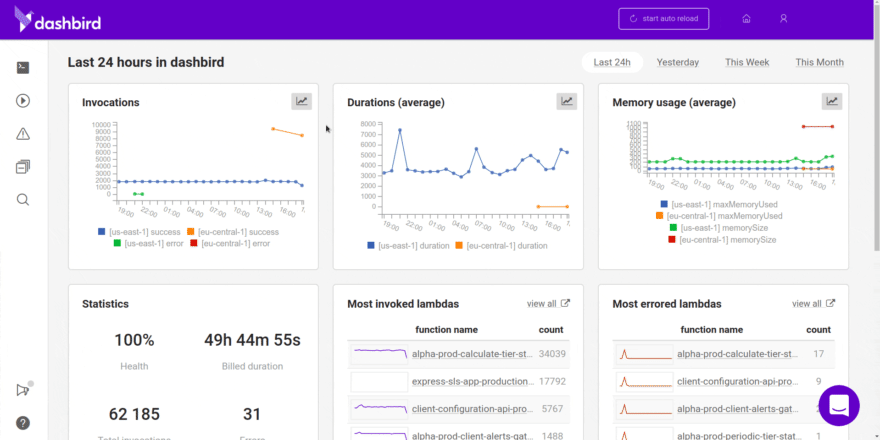Sections
A Screw Fell To The Ground
[avatar user=”malm” size=”small” align=”left” link=”file” /]
The story of what happened when Google’s ‘Don’t Be Evil’ met the Great Firewall of China is a an object lesson in the limits of techno-utopianism when faced with immovable authoritarianism. The starting point is a celebrated foundational myth of Silicon Valley:
There’s this Utopian idea: Technology will come in, and people will take these tools, change their government, and get their freedom,” he says. “We tried that experiment, and it didn’t work.”
The reality is far more Orwellian and very much in line with 2018’s darker vision of technology as an key enabler of mass population surveillance and control. There are no grey lines here:
“China has no boundaries between the state and private companies. If you go there, you must be part of digital totalitarianism.”
Xu Lizhi was a Chinese poet and Foxconn factory worker who committed suicide in 2014. His work, which is readily available via Google in the West, is austere and unrelenting in its central theme and feels monochromatic, like the film portrayal of Joy Division’s Ian Curtis. A Screw Fell to the Ground is haunting and unforgettable. Although not overtly political, even when he was alive, his work dripping in the kind of imagery redolent of a dead ghost in the world of the living. Like the found poetry of an Oceanic Winston Smith:
Xu’s poetry is cold and pensive, directly facing a life of misery. His poems trace a trajectory in which the scent of death becomes more and more pronounced. He had already rehearsed death hundreds of times in his writing, so the final act was merely a small step over the edge.

Services
As NYT report on how natural language processing is becoming ever more sophisticated, Amazon’s hardware chief Dave Limp envisions a day when Alexa is a pure software platform play and Lab126 no longer makes Echo hardware. Presumably he’s well aware that all the money in IoT lies in the software and data and the reason “IoT is such a mess” is broaldy because hardware players remain largely blind to this:
All the value in IoT (for users) comes from software – better management of tangible assets. But most of the enabling required is hardware. From our perspective, deep in the hardware trenches, most companies talking about IoT are hardware companies that have no understanding of software. … Too often, we find hardware makers dismissing opportunities because ‘the database won’t be able to scale’. Spend your career specializing in one field and you can be forgiven for not keeping up to date on the advances that others took for granted ten years ago. Trust us, the data behind a few hundred thousand devices transmitting a few bytes a couple times a day is ‘small data’.
APIs lie at the core of this IoT software value and are the basis for all software-based service propositions. Even so, they are notoriously hard to explain to non-technical co-workers. This article attempts to describe what they are and the immense advantages they confer on businesses that are seeking to be software-led:
“An API is a set of instructions, written by the developer of an application, which is published for the benefit of other developers. The goal of APIs is to give developers a common, standard method for writing software that builds upon each other.”
APIs ultimately need to sit on top of deployment infrastructure which Amazon also dominate through AWS. This post explains how to deploy a node.js based web app using serverless technology in the form of AWS Lambda. It’s a great example of how incredibly powerful internet-scale technology is now at the disposal of bedroom developers anywhere in the world. Propositions such as Dashbird for monitoring the setup add further platform value.

Startups
Not exactly bedroom startup tech but you can build your own chip for $30million. This is an interesting and new development but there’s not going to be a rush to take advantage:
many of the costs of designing a chip have fallen, allowing customers to start exploring designing their own chips. However, this opportunity is only open to companies with sufficient resources to pay the upfront licensing costs for necessary IP. To outside observers this appears to be have blown the doors wide open with every company entering the fray. In reality, the number of companies bringing semis design in-house is actually very limited.
The journey to Series A in Europe is somewhat opaque. Relabelling what is early VC, what is bridging and what is Series A makes somewhat of a difference:

The end of the Beginning from Benedict Evans of a16z explores opportunities that the startups of the future will exploit. Niche-specific applied AI and Machine Learning is the key takeaway:
Software Development
Github State of the Octoverse on top programming languages reveals JavaScript, Java and Python in that order in terms of contributors:

C++ remains in the top 5 and the language of choice for much of the open source technology behind the internet but as this important post written by a Rust contributor at Mozilla points out, the internet has a huge security problem and developers don’t want to deal with it:
when developers sit down to choose a programming language for a new project, they’re generally making their decision based on what languages their team knows, performance, and ecosystem of libraries that can be leveraged. Security is almost never a core consideration. This means languages which emphasize security, at the cost of ease of use, are at a disadvantage.
Lessons learned from a thousand code reviews underlines the importance of type safety:
Suggestion 1: Throw an exception when things go wrong
Suggestion 2: Use the most specific type possible
Suggestion 3: Use Optionals instead of nulls
Symbian OS which was once the future was written in C++. Its creators went to extraordinary lengths to address the shortcomings of C++ but in the process made it impossible for all but the most determined and capable developers to address it. This tour de force written 13 years ago when the platform was the market leader is a brusque but well-constructed critique of its design faults based on the key point that:
not only mobile devices, but the developers themselves have very limited memory and processing power!
The best way to follow all that is with some horse programming:

Moving to 2018, real-world microservices could benefit from using gRPC for specifying a language-independent way of defining the service interfaces and messages:
When we build multiple microservices with different technologies and programming languages, it is important to have a standard way to define service interfaces and underlying message interchange formats. gRPC offers a clean and powerful way to specify service contracts using protocol buffers. Therefore, gRPC is probably the most viable solution for building communication between internal microservices.

Introduction to functional programming in JavaScript:
Work
The cost of losing an employee is real and can be quantified:
Josh Bersin of Deloitte believes the cost of losing an employee can range from tens of thousands of dollars to 1.5–2.0x the employee’s annual salary. These costs include hiring, onboarding, training, ramp time to peak productivity, the loss of engagement from others due to high turnover, higher business error rates, and general culture impacts.
One way to recruit and retain better engineers, open source your codebase and support its development like you would a product:
work open source “by default”—meaning unless an engineer can explain a business reason for not publicly publishing a piece of code, it is published in a public repository.
An amazing email from Uber’s then new CEO Dara Khosrowshahi only a few weeks into the job demonstrating great EQ:
While the impulse may be to say that this is unfair, one of the lessons I’ve learned over time is that change comes from self-reflection. So it’s worth examining how we got here. The truth is that there is a high cost to a bad reputation. Irrespective of whether we did everything that is being said about us in London today (and to be clear, I don’t think we did), it really matters what people think of us, especially in a global business like ours, where actions in one part of the world can have serious consequences in another.
Science
Another take on consciousness as vibration, specifically resonance in neural circuits.
Simpson’s Paradox or how to prove opposite arguments with the same data.
Society and Technology
The gig economy loves gamification. The techniques are well-understood from the world of gambling:
behavioural psychologists have long understood that gambling uses variable reinforcement schedules – unpredictable intervals of uncertainty, anticipation and feedback – to condition players into playing just one more round.

Fascinating post on a sophisticated mass scale ad fraud scheme targeting Android phones by harvesting and replicating real user data:
acquire legitimate apps through We Purchase Apps and transfer them to shell companies. They then capture the behavior of the app’s human users and program a vast network of bots to mimic it … By copying actual user behavior in the apps, the fraudsters were able to generate fake traffic that bypassed major fraud detection systems.

Brexit
Guardian Long Read from Fintan O’Toole on how Brexit is a “paranoid fantasy” tor Brexiteer reactionaries convinced they are living in a counterfactual fevered nightmare where the Germans really won the Second World War in the form of the EU. Our heroic efforts to leave thereby representing our Finest Hour v2.
Meanwhile in the real world, the New Yorker like other external observers sanguinely notes that its all ending in tears:
Contrary to the claims of the Brexiteers, Britain already had substantial flexibility within the E.U. Having long ago opted out of the common currency and other E.U. initiatives, it retained the freedom to set its own interest rates and fiscal policies, check visitors at the border, and reject some of the legislative directives from Brussels, but it enjoyed all the advantages of the single market. To the extent that any E.U. member country was having its cake and eating it, Britain was the one. Now it has spent two and a half years trying to sabotage its future.
